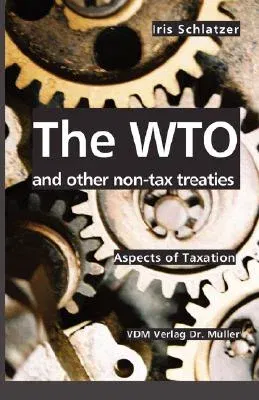Taxation is one of the most protected areas of national sovereignty and
therefore has great potential of causing obstructive effects on
international trade activities. In this respect, the World Trade
Organisation is the world's single supervisor of global trade. And of
course, the WTO is very well aware of the phenomenon of tax-related
distortions of international trade. This book will deal with the WTO
provisions relating to taxation and the resulting consequences for a
country's latitude to design its fiscal measures. The author will give
an introduction to the WTO agreements' legal status within the European
Union and the single European Member States. Focus will be on the impact
of the WTO regulations in the respective legal orders, which includes an
analysis of their legal enforceability. Moreover, the repercussions on
individual parties will be addressed as well. Primarily, the book will
be dedicated to the GATT and the GATS and their effect on taxation.
Great emphasis will be attached to the two major principles embraced
therein - Most-Favored-Nation Treatment and National Treatment. In
addition, light will be shed on the relationship between the WTO and
bilateral double taxation conventions, on the eventuality of conflict
and the possible prevalence of one agreement over the other. Finally,
non-tax treaties other than the WTO will be addressed. The purpose is to
show to what extent these treaties include provisions on taxation or
"carve-out" the issue. Substantially, the author focuses on Treaties of
Friendship, Commerce and Navigation, Bilateral Investment Treaties and
the Multilateral Agreement on Investment.


